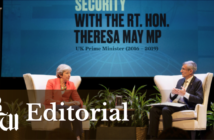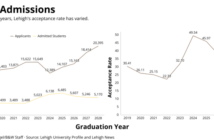When 129 people were killed in the terrorist attacks in the French capital on Nov. 13, the world stood behind Paris.
The United States, Australia, the United Kingdom and China, among other countries, lit up national monuments in the colors of the French flag to show support. Individuals took to social media to show support for friends and family in France. President Barack Obama made an official statement saying the attack wasn’t just on Paris, but on all humanity and our universally shared values.
But the world didn’t acknowledge the other tragedies occurring around the globe.
The day before the attacks in France, Islamic State suicide bombers killed 45 people in Beirut, Lebanon. Despite reports in the news on the day of the Beirut attack, it didn’t garner the same attention or support as the attacks in Paris.
“To the world, my people’s deaths in Beirut do not matter as much as my other people’s deaths in Paris,” Joey Ayoub, Hummus for Thought blogger, said. “We don’t get a safe button on Facebook. We don’t get late night statements from the most powerful men and women alive and millions of online users. We don’t change policies which will affect the lives of countless innocent refugees.”
Parts of the world face terrorism and violence on a daily basis. It’s a constant presence in the lives of some, yet we fail to provide them support in a similar way to how the world rallied around Paris. The lack of attention toward Beirut and other countries facing terrorism — typically those outside of the Western hemisphere — left many wondering why we focused all of our attention on only Paris.
Although it’s devastating to hear about attacks in Beirut, the media seemed more quick to cover the attacks in Paris. There might be many reasons for the widespread coverage that Paris received, as opposed to other countries. Maybe it was because terrorist attacks are perceived as more shocking when they happen in world hubs like Paris or in places that aren’t directly involved in active conflict. Many people in the U.S. feel ties to Paris, since they may vacation there or study abroad there.
People even changed their Facebook profile pictures to reflect the French flag. This act was done to show support for Paris. But no profile pictures were changed for Beirut.
Some argue that because terrorism is a common occurrence for countries like Syria, it has left them desensitized to hearing about attacks in those parts of the world. That doesn’t make those attacks insignificant, though. That isn’t an excuse not to care when they happen — people are still being killed.
The difference in support between the Paris attacks and the attack in Beirut shows how Western media and the world at large focus less on the Middle East and what’s happening there.
Though we may have a connection with Paris, we have a disconnect with the Middle East.
When these sort of attacks occur, what results is Islamophobia — prejudice or fear against Islam or Muslims. Often enough people associate Islam with terrorism and violence, but comparing all Muslims to the extremists that commit those crimes is like fearing all Christians because they have the same beliefs that the Ku Klux Klan fosters.
Because a Syrian passport was found to belong to one of the Paris attackers, there has been a crackdown on refugees fleeing from Islamic countries and countries with the Islamic State group’s presence. US News reported that Republican presidential candidate Ted Cruz has called for only Christian and not Muslim Syrian refugees to be allowed into the United States. New Jersey Governor Chris Christie has called for a ban on all Syrian refugees, and Donald Trump has suggested mosques be shut down. Forty-seven House Democrats voted to halt Syrian and Iraqi refugees from entering the United States.
“Americans are being exposed to Islamophobic messages all the time that convey gross inaccuracies about Islam,” said Friar Michael Calabria, director of the Center for Arab and Islamic Studies at St. Bonaventure University in Western New York. “I understand people are fearful. But you don’t respond to fear and hatred with more fear and hatred.”
As a result of Islamophobia, people assume everybody from an Islamic country is capable of being a terrorist. But that isn’t true by any means, and this shows our prejudice toward one certain group of people — we didn’t assume all white men are capable of becoming a school shooter after the Charleston Church shooting.
The Western perspective on Middle Eastern life has become skewed to believe that violence happens there all the time and the American public has become desensitized to that violence. However, the United States does have a military presence in many of those countries, and many times the bombings that occur can be directly or indirectly linked to us.
We can’t assume that all people in one certain group are terrorists, nor can we assume they are the ones at fault for the terrorism in their own countries. The people living in the Middle East matter just as much as the people in Western countries, and we need to put our prejudices aside.
Our support shouldn’t only be for Paris, but for all the countries facing terrorism around the globe. Terrorism isn’t only being experienced by France. It is experienced by all of humanity.





Comment policy
Comments posted to The Brown and White website are reviewed by a moderator before being approved. Incendiary speech or harassing language, including comments targeted at individuals, may be deemed unacceptable and not published. Spam and other soliciting will also be declined.
The Brown and White also reserves the right to not publish entirely anonymous comments.